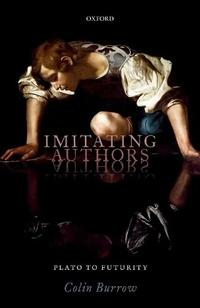Renaissance Imitatio: Colin Burrow, Kathy Eden and Brian Cummings in conversation
What happened when the Early Modern English Literature Seminar went virtual?
Sitne? Quid sit? Quale sit?
Did it happen? What happened? What kind of act was it?
These three questions are what Professor Kathy Eden outlined as the status system of the Hellenistic and Roman rhetorical tradition; they are three questions that work, in a pincer movement, to identify the matter at hand. So, let’s try them out.
Sitne? Yes, it happened, in spite of a global pandemic. Quid sit? ‘Renaissance Imitatio’, a seminar led by three leading professors, Professors Kathy Eden, Brian Cummings and Colin Burrow on the conjunction of classical rhetoric and Renaissance literature. Quale sit? An intellectual feast, purveyed through the medium Zoom call to an audience of fifty eager listeners.
Part of the Early Modern Seminar series run by Lorna Hutson and Katherine Murphy, ‘Renaissance Imitatio’ was originally intended to be hosted in Merton College’s T. S. Eliot theatre. But due to COVID-19, these plans were put on ice (unlike the traditional post-seminar wine). Fortunately, and with the cooperation of our three speakers, a digital symposium was held in venues on both sides of the Atlantic allowing the conversation to continue.
It is exactly the persistence of literary conversations, across time and space, that is the subject of Colin Burrow’s recently published Imitating Authors: Plato to Futurity. In his talk, focusing on the seventh chapter of that book, Burrow discussed how authors, their texts, and the “idea of the author” inside those texts influence their forbears. Emphasising Northern European printed humanism, rather than the ‘charismatic’ Italian model, Burrow interrogated what he called “the replication of genius in the age of mechanical reproduction”. Imitatio was nearly universal but not at all unitary, offering competing visions of how a writer might appropriate for their own writing the ingenium of an author or an exemplar text. Not a recipe of elements, imitatio is a practice whose mastery is transformative. It is both ars and art. An imitating author stakes out their own ingenium (their own art) through their imitation of the ars (or the rhetorical craft) of their predecessors.

Brian Cummings turned to Erasmus, the subject of his future research and a forthcoming entry in the Brill Companion to Erasmus. Cummings suggested scholars have at times minimised Erasmus’s interest in literature, or more precisely litterae. Erasmus takes an approach to imitatio which blurs on the one hand into a theory of action and on the other into mimesis, an interest in how language represents reality—the relationship between verba and res. Erasmus advocates for a way of writing that seeks, from the abundance of things in the world and the abundance of language, a balance between brevity and variety. Imitation has a role here but Erasmus warns that Cicero, for example, cannot be followed slavishly; instead, his is a pattern of writing to be understood and internalised towards one’s own style. In his talk Cummings suggested that Erasmus is interested in how words represent the self, and in how an imitation (or perhaps a mimesis) of the emotions of others might allow a reader to better understand their own person and agency. What is the relationship of rhetorical theory to personal agency, words to will and ars to acts?
It is this relationship that Kathy Eden identified as one of the commonalities between hers, Burrow’s and Cummings’s work; namely that all three see the enabling condition for Renaissance thought and literature as not only the rediscovery of classical texts but their ‘recovery’ through imitation. Again there is a transformative element in these acts of imitation; it is not simply that Erasmus read Plato, but how he read Plato, what Eden and Burrow (following Sturm) call attention to the ‘deep structure’ of a work. That attention is what Eden called the complementarity or interplay of reading and writing, perhaps the essential ingredient of all imitation. Eden suggested that her fellow speakers saw imitation as going beyond a theory of literary borrowing to instead denote a practice of poetic mimesis more broadly. Here some productive (and friendly) dissent appeared, Eden suggesting that imitation would only take on that enlarged sense later, in the time of Alexander Pope.
Having three such distinguished speakers, as well as invaluable contributions from Terence Cave, Micah Lazarus and others, was an excellent opportunity for attendees to put into practice their own powers of imitatio, in observing deft scholarship at work. The speakers reminded us that classical rhetorical theory informs every level of early modern literary practice and is indispensable for our understanding of that literature. Attendees were lucky, too, to get to read work in progress from Eden and Cummings; after all, as the speakers so eloquently argued, in societies that value imitatio, reading comes to bear closely on writing. In these times of lockdown, the collegiality of reading and hearing others’ work is crucial to making progress with our own.
Jake Arthur, DPhil candidate, English Faculty, Oxford.



